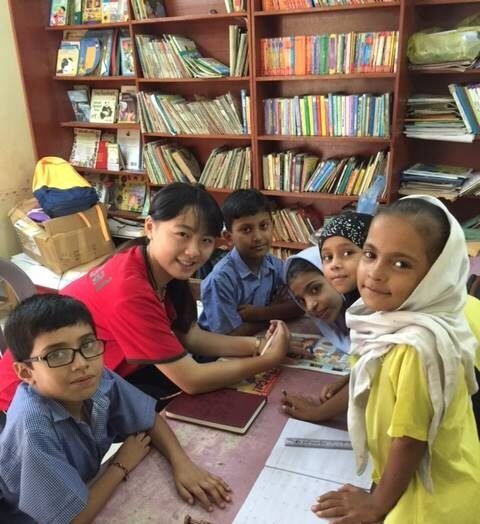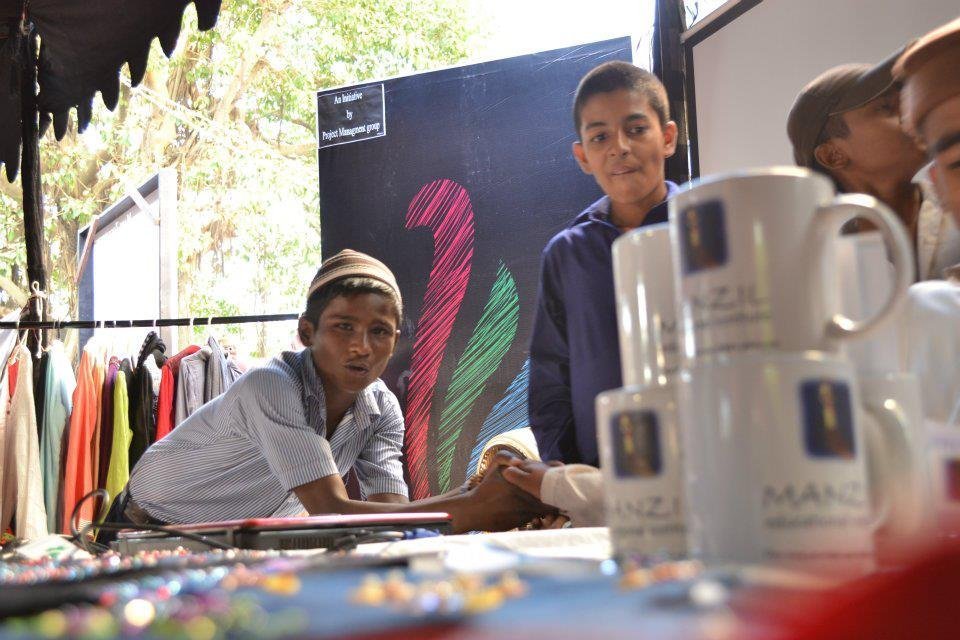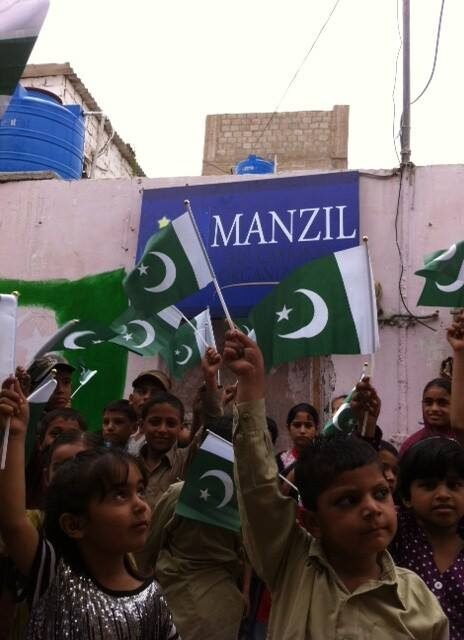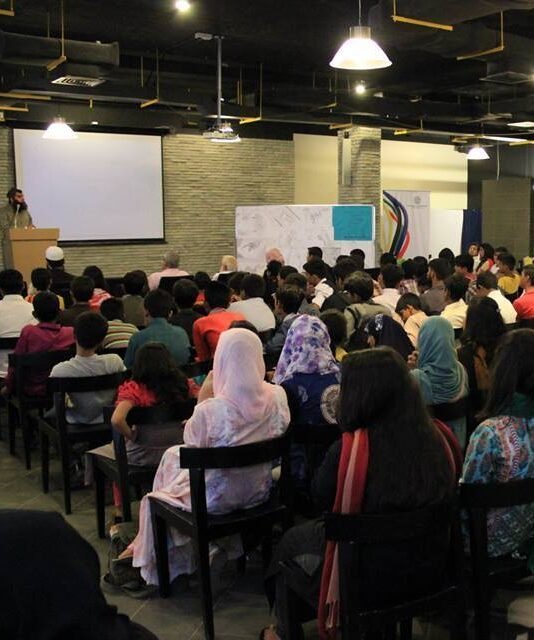At Manzil, we recognize that education is not merely about academic performance; it’s about creating well-rounded individuals capable of navigating the complexities of the 21st-century world. This understanding has led us to design our innovative Care Curriculum, which seamlessly blends cognitive and affective learning approaches. This curriculum focuses on enhancing both academic skills and personal qualities, helping our children to excel in communication and socio-emotional competence. Our young learners are taught how to identify and manage their emotions, make ethical choices, and develop meaningful relationships with both peers and adults.
Our commitment to cognitive-affective learning extends beyond the classroom to every interaction our students have—be it with teachers, volunteers, patrons, or the community at large. We instill the values of care and empathy through a multi-faceted strategy that involves active listening, specialized counselling, emotional bonding, and targeted personality development programs. As a result, our students grow to become emotionally intelligent individuals who respect diverse perspectives and are empathetic to the feelings of others. They’re not just learners; they’re emerging leaders, capable of making informed, responsible decisions that positively impact their communities.


Dreams and ambitions are the birthrights of every child, irrespective of their social background. Manzil is committed to offering the tools that help make these dreams a reality. We partner with local educational and vocational centers to expose our students to a plethora of opportunities tailored to their individual needs, devoid of any predefined gender roles.
Our standout program, “Khuddar Pakistani,” leads our skills development initiatives, paving the way for both personal and vocational growth. Coupled with our growing RUNG brand, we are not just empowering individuals but creating a movement towards self-sustainability within marginalized communities.
At Manzil, we recognize that education doesn’t stop at the school gate. As a Community-Based Organization, our core ethos revolves around nurturing healthier, more educated communities filled with responsible citizens. This means we extend our sphere of influence to encompass not just the children we educate but their families as well. Engaging particularly with parents, and especially mothers, allows us to ensure that the progressive values and educational advancements gained at school are being reinforced at home. In addition to this, we remain vigilant about various domestic issues—from healthcare to housing—that could potentially impact a child’s overall development.
As we broaden our reach, our commitment to community development adapts to meet emerging needs. For instance, we are evolving our focus to include providing shelters and comprehensive support services for street children who have been abandoned or dislocated from their families in underserved urban and rural areas. Our aim is not merely to act as a stopgap but to mobilize entire communities. We’re developing platforms designed to encourage collective action, fostering a sense of unity and shared responsibility. This enables us to address the root causes of marginalization and poverty more effectively.
Moreover, we’re proud that our educational philosophy creates an active, civic-minded student body. Our students have a history of stepping up to serve their communities, especially during times of disaster or other calamities. This active societal participation is not just a testament to their personal growth but also evidence of the broader, positive impact Manzil’s educational approach has. It prepares our students to evolve into not just well-educated individuals, but responsible, caring citizens who contribute to society in meaningful ways.


In the fast-paced 21st century, high-quality teaching isn’t a luxury—it’s a necessity. Understanding this, Manzil invests in continuous professional development for our educators to ensure they’re equipped with advanced pedagogical skills, updated knowledge, and diverse proficiencies. Our unique training focuses not just on academic standards but also emphasizes the importance of fostering genuine, caring relationships between teachers and students. By doing so, our educators are better positioned to contribute to the holistic development of responsible and compassionate members of society.
Our teacher training at Manzil is designed to be comprehensive, covering two major areas: educational strategies and the development of social-emotional competencies. We offer a variety of training sessions that range from mastering formative and summative assessments to creating effective lesson and unit plans. We also delve into more specialized topics like the Affective Teacher Model, VARK learning modalities, Multiple Intelligences, and even topics like stress management and emotional intelligence. This well-rounded approach ensures that our teachers are not only experts in their subjects but are also adept at managing classroom dynamics, understanding student psychology, and adapting to diverse learning needs. The impact of these trainings resonates far beyond the classroom, shaping a learning environment where every student can thrive.
The sight of young children with dirty faces and worn-out clothes begging on the streets or doing odd jobs is tragically common in the cities of Pakistan. With estimates suggesting that 1.2 to 1.5 million children are living in such conditions, the issue cannot be ignored. At Manzil, we aim to go beyond merely raising awareness. We’ve developed a comprehensive program that not only focuses on educational needs but also takes into account the psychological, health, and vocational requirements of these vulnerable children. Though we do not provide shelter, our program serves as an educational sanctuary, helping these children gain valuable life skills and escape the cycle of poverty.
It’s essential to recognize that small, isolated efforts are insufficient in tackling this enormous issue. A more sustainable, collaborative approach is required, one that involves both public and private sectors. Through our non-formal education program, we’ve seen significant success in bridging the educational gap for these marginalized children, but this is just the tip of the iceberg. We’re continuously working to expand our program and forge partnerships that can help us create a scalable, government-backed solution. So the next time you encounter a child living on the streets, remember that a comprehensive action plan is not just a need but a societal obligation to give these children the future they rightfully deserve.
